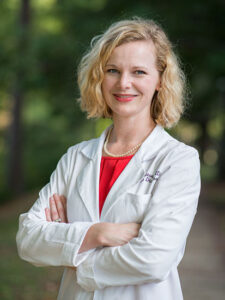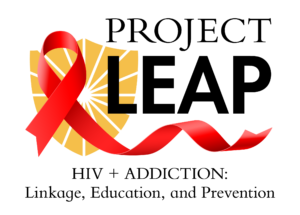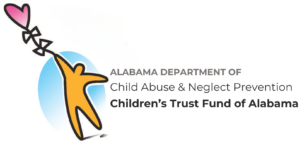 Dr. Ellen Eaton, an Infectious Disease Specialist at UAB, is renowned for her work in HIV and AIDS and as a result, the connection to substance use. Within her first year of medical school, Ellen knew she wanted to specialize in infectious diseases, after becoming fascinated with both the medical microbiology and the social science that it entailed. After spending a summer in Zambia, she discovered her heart for vulnerable populations, specifically those suffering from HIV. Her passion for this global issue has resulted in her heavy involvement in the mission toward bringing relief to her local community. It was following her Infectious Diseases fellowship that she joined the National Academy of Medicine and began taking trips to Washington D.C., working with a group researching the infectious consequences of addiction, with a focus on opioids. This observation led to the personal realization for Ellen that the initiatives of both the East and West coasts were far more aggressive in their prevention efforts and far more effective in eliminating the disease of substance use than the South. This realization has fueled the research that Dr. Eaton has been able to begin in the realm of both addiction and diseases in the South.
Dr. Ellen Eaton, an Infectious Disease Specialist at UAB, is renowned for her work in HIV and AIDS and as a result, the connection to substance use. Within her first year of medical school, Ellen knew she wanted to specialize in infectious diseases, after becoming fascinated with both the medical microbiology and the social science that it entailed. After spending a summer in Zambia, she discovered her heart for vulnerable populations, specifically those suffering from HIV. Her passion for this global issue has resulted in her heavy involvement in the mission toward bringing relief to her local community. It was following her Infectious Diseases fellowship that she joined the National Academy of Medicine and began taking trips to Washington D.C., working with a group researching the infectious consequences of addiction, with a focus on opioids. This observation led to the personal realization for Ellen that the initiatives of both the East and West coasts were far more aggressive in their prevention efforts and far more effective in eliminating the disease of substance use than the South. This realization has fueled the research that Dr. Eaton has been able to begin in the realm of both addiction and diseases in the South.
Dr. Eaton explains the contrast between the South and more inclusive parts of the country saying, “There is more access to treatment, there is training in the community, and there are harm reduction programs that allow physicians and social workers to actually access patients…I realized part of our problem in the deep South is that because we criminalize and stigmatize substance use so much. These patients use substances in back alleys and behind closed doors and there isn’t an opportunity to prevent overdose and diseases, educate them and link them to treatment.” Stigma is one of the greatest barriers that Dr. Eaton faces in her pursuit of substance use prevention. Taking on many forms, stigma is woven into the culture of the South in a unique and deadly way. From the way one thinks, to verbiage used to describe those who are less fortunate, individuals send unspoken messages daily about what they believe and how they view others. These issues are prevalent in the healthcare industry and must be eliminated in order for change to occur.
Dr. Eaton explains that her clinic, along with others, undergo stigma training, ensuring that from signage at the door, to the waiting room, to the intake assessment, all patients feel equally welcome. This is to shift the narrative from addiction as a moral failing to addiction as a chronic disease. Dr. Eaton states, “If people feel unwelcome and stigmatized, they will not come back, which counteracts all objectives of providing necessary treatment.” One way that other areas of the country are eliminating stigma and providing this welcoming environment is through harm reduction, such as naloxone and syringe services. Harm reduction is the philosophy that we often can’t eliminate all risk for persons who use substances, but we can provide tools to make them safer, like naloxone that prevents fatal overdoses. Providing clean, sterile syringes to community members creates a touchpoint for people who would normally not come to the clinic. Although healthcare providers do not endorse any type of drug injection, it is well-documented that access to sterile syringes and other forms of harm reduction like naloxone improves patient care and community outcomes. Dr. Eaton explains, “If you don’t have a warm, safe, inclusive space, it’s going to be really hard to reach that population for overdose and infection prevention.” And it will be impossible to end the HIV and Hepatitis epidemics. She follows up by saying, “They can either continue to inject and share syringes with friends and partners and be at risk for HIV and Hepatitis C or will continue to inject with sterile needles.” If patients feel normalized and comfortable, the healthcare providers automatically have a foot in the door to help them find freedom from addiction and healing.
Scientifically, abstinence from the substance is not always the solution. Along with providing a safe environment, there are long-acting opioid antagonist medicines that block the receptors of the brain, leading it to believe that it is on the illicit drug. This provides long-term relief without withdrawal symptoms, rapid highs and bottoming out lows. Dr. Eaton observes, “When it comes to the patients I have who have heroin or fentanyl disorder, they do so much better with an opioid antagonist like methadone or buprenorphine. They do better in terms of HIV, their Hepatitis C, and they are able to get jobs and be productive members of their family.” SAMHSA research states, “Taking medication for opioid addiction is like taking medication to control heart disease or diabetes. It is not the same as substituting one addictive drug for another. Used properly, the medication does not create a new addiction. It helps you manage your addiction so that the benefits of recovery can be maintained.” [1] The message of abstinence is primarily preached in the South. Dr. Eaton is seeking to change this message and bring awareness of evidence-based addiction treatment to her community. She continues saying, “…If you offer them abstinence only ‘cold turkey,’ the science says very few people are going to do well. That patient didn’t fail your service, you failed them by not providing something that was evidence based and what the experts say should be the standard of care.” These opioid agonists like buprenorphine and methadone, when used as prescribed, have been found to create space for these individuals to enter society again and function normally.
 Due to her exposure to addiction treatment practices nationally, Dr. Eaton has made great strides to bring harm reduction to Birmingham. Through her partnership with SAMHSA in 2019, she has been working alongside APC to reach students and young adults to prevent substance use. However, Dr. Eaton explains that there are still more patients that need addiction treatment than there are physicians who are comfortable and trained with treating substance use disorder. The disease of addiction is a present epidemic in every area of the nation and every area of the world has something to learn from the other in regard to prevention and resources. By learning about harm reduction and community prevention from those who are ahead, the South could make great strides to reduce the spread of infectious diseases and create safe places for individuals to find help.
Due to her exposure to addiction treatment practices nationally, Dr. Eaton has made great strides to bring harm reduction to Birmingham. Through her partnership with SAMHSA in 2019, she has been working alongside APC to reach students and young adults to prevent substance use. However, Dr. Eaton explains that there are still more patients that need addiction treatment than there are physicians who are comfortable and trained with treating substance use disorder. The disease of addiction is a present epidemic in every area of the nation and every area of the world has something to learn from the other in regard to prevention and resources. By learning about harm reduction and community prevention from those who are ahead, the South could make great strides to reduce the spread of infectious diseases and create safe places for individuals to find help.
References:
1. https://www.samhsa.gov/medication-assisted-treatment/medications-counseling-related-conditions/buprenorphine









